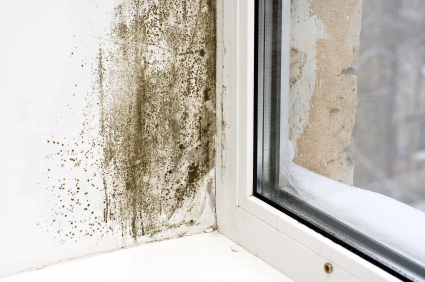
ALERT! Here’s what happened.
Recently I was staying in a friend’s rental property for a couple months during the summer. I started having an intermittent leak in the kitchen from the ceiling. We finally discovered that every time the resident living above me ran his air conditioner, the condensation was collecting and finding its way into my place. That would have been a perfect situation for mold to grow had we not caught it in time.
Things to consider.
What is mold?
Molds are simple, microscopic organisms, found virtually everywhere, indoors and outdoors. Molds can be found on plants, foods, dry leaves, and other organic material. They reproduce by forming tiny spores that are not visible to the naked eye. Mold spores are very hardy and can survive under conditions in which mold cannot grow, such as in dry and harsh environments. When mold spores land on a surface where moisture is present, mold can start to grow. Mold growths can often be seen in the form of discoloration, ranging from white to orange and from green to brown and black.
What does mold need to grow?
In order for mold to grow, it needs three things:
- A food source such as wood, paper, or leaves,
- A source of moisture, and
- A place to grow.
Where can mold find moisture in my home?
Be on the lookout for the following sources of indoor moisture that may cause mold problems:
- flooding
- backed-up sewers
- leaky roofs
- humidifiers
- damp basement or crawl spaces
- constant plumbing leaks
- shower/bath steam and leaks
- wet clothes on indoor drying lines
- clothes dryers vented indoors
- combustion appliances (e.g. stoves) not exhausted to the outdoors
Should I be concerned about mold in my home?
Yes, if the contamination is extensive. When airborne mold spores are present in large numbers, they can cause allergic reactions, asthma episodes, infections, and other respiratory problems for people. Exposure to high spore levels can cause the development of an allergy to the mold. Mold can also cause structural damage to your home. Similarly, when wood goes through a period of wetting, then drying, it can eventually warp and cause walls to crack or become structurally weak.
TAKE ACTION! Here’s the good news about what you can do.
Since mold spores can live for years in dormancy but come alive as soon as they have moisture, it’s important to eliminate all sources of moisture in your home. Don’t let the mold get started.


